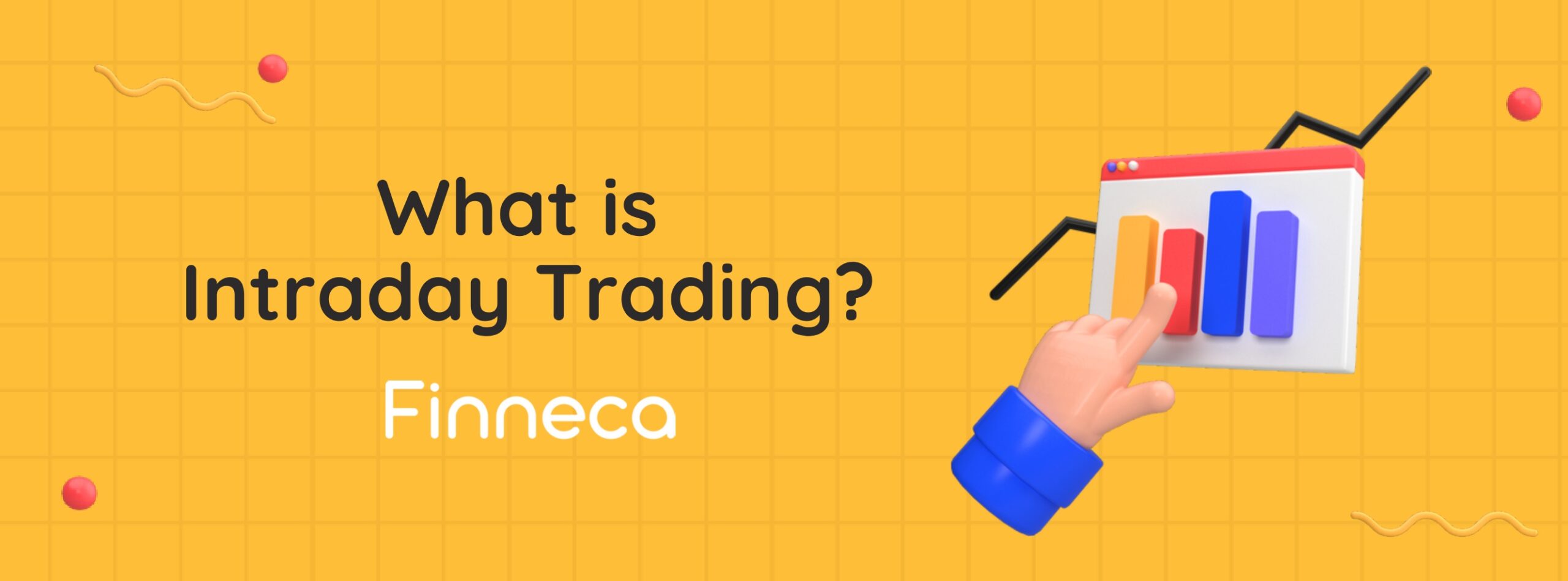📈 What is Intraday Trading?
A Simple & Easy Guide for Beginners
When you hear the term "intraday trading," it might sound complicated. But in reality, it's pretty simple once you understand the basics. Let’s break it down step by step—in the easiest way possible.
🔍 What Does "Intraday" Mean?
The word "Intraday" means within the same day.
Intraday Trading means buying and selling a stock on the same day before the market closes. No holding overnight—everything happens in a single trading session.
💡 How Does Intraday Trading Work?
Here’s how it works 👇
- 🕘 You choose a stock in the morning.
- 📈 You buy it expecting the price to go up (or sell if expecting it to fall).
- 💰 Once it hits your target, you exit the trade before 3:15 PM.
- 🧾 If not, your broker usually auto-squares off your position.
Example:
You buy 100 shares at ₹200 in the morning. By afternoon, it hits ₹210.
You sell = ₹10 × 100 = ₹1,000 profit, all in a day.
📘 Basic Intraday Terms You Should Know
Knowing these common terms makes intraday trading a lot easier:
- 🛒 Buy (Long): You expect the price to go up, so you buy first, then sell later.
- 🏷️ Sell (Short): You expect the price to go down, so you sell first, then buy back at a lower price.
- 🔄 Square Off: Closing your open position (buy/sell) on the same day.
- 🛑 Stop Loss: A set price where your trade automatically exits to limit losses.
- 🎯 Target Price: The price you aim to exit with a profit.
- 📊 Volume: The total number of shares being traded. Higher volume = better liquidity.
- ⚡ Volatility: How much the price moves. More movement = more profit (or loss) potential.
- 🏦 Margin / Leverage: Brokers let you trade with more than your balance. But higher margin = higher risk.
🛠️ Tools Used in Intraday Trading
To trade smart, you need smart tools! Here are the most useful ones:
📈 1. Technical Charts
Visual representation of price movement. Helps in spotting trends, support/resistance, and trade setups.
📊 2. Indicators & Signals
Commonly used indicators include:
- 🔵 Moving Averages (MA) – Show trend direction.
- 💹 RSI (Relative Strength Index) – Tells if a stock is overbought or oversold.
- 📉 MACD – Indicates momentum and trend reversals.
- 📏 VWAP – Volume Weighted Average Price for intraday guidance.
🧠 3. Smart Money Concepts
These help you follow where big institutions (smart money) are trading:
- 🧱 Order Blocks – Zones where large players enter or exit trades.
- 🧭 Break of Structure (BOS) – Change in market trend.
- 💧 Liquidity Zones – Areas where stop losses are collected and reversals happen.
- 🔁 Market Structure Shift (MSS) – Signs of trend reversal or strong movement.
These tools help you trade with the big players, not against them!
📰 4. Live Market News & Events
News can move prices fast! Stay updated with:
- 📅 Economic data
- 🏛️ Government policies
- 📢 Company earnings
🕵️♂️ 5. Price Action Strateg
Reading candlestick patterns, trendlines, and market behavior without relying on indicators:
- Doji, Hammer, Engulfing
- Support & Resistance
- Breakouts & Pullbacks
📉 6. Volume Analysis
- 📈 Rising price + rising volume = strong buying
- 📉 Falling price + rising volume = strong selling
💻 7. Trading Platforms
Modern trading apps make intraday trading smooth:
- TradingView 📊
- Zerodha Kite 🦅
- Upstox Pro 🚀
- Angel One 💼
🤔 Why Do People Do Intraday Trading?
- 🏃♂️ To make quick profits within the day
- 💼 Avoid overnight risks and global news impacts
- 🔄 Use market volatility to their advantage
⚠️ Risks Involved in Intraday Trading
- 📉 Stock may move in the wrong direction
- 😓 Emotional decisions lead to losses
- 💸 Using too much margin can magnify your losses
That’s why intraday trading should be done with a plan, discipline, and stop loss.
✅ Pro Tips for Beginners
- 🔍 Start with paper trading or small capital
- 📚 Learn technical & price action analysis
- 🛑 Always use stop loss
- 🧘 Don’t panic or get greedy
- 📈 Focus on 1–2 quality trades a day—not quantity
- ⏱️ Trade during high volume time (9:30 AM to 11:00 AM)
- 📒 Keep a journal to track your trades and mistakes
- 🎯 Set realistic targets and accept small profits initially
- 📵 Avoid overtrading & revenge trading
- 📺 Watch experienced traders on YouTube or webinars
🧾 Final Thoughts
Intraday trading can be rewarding if done with knowledge and discipline. It's not about gambling or guessing. It's about using the right tools, strategies, and mindset.
With practice, patience, and proper planning—you can build a smart intraday trading journey.
